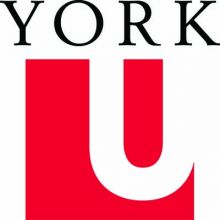
Arts University Bournemouth might have thought that it was getting a safe pair of hands when it appointed a former assistant chief of the general staff as its chief operating officer. Instead, Nick Welch has brought a slew of unwelcome headlines for the institution after he became the most senior officer to face a court martial since 1815, being sentenced to 21 months’ imprisonment after being convicted of fraudulently claiming £48,000 in private school fees while serving as a major general. Welch was found to have misused a continuity of education allowance by falsely claiming that he and his wife spent most of their time at his London address while sending his children to schools in the south-west of England. But the court martial ruled that the couple had actually spent most of their time at their home in Dorset.
In popular culture, university professors are sometimes portrayed as absent-minded and out of touch with the real world, and an incident at a Canadian university has done nothing to dispel that stereotype. A sceptical mathematics professor, seemingly unaware of the deteriorating security situation in Myanmar, threatened to fail a student who asked if they could take an exam at a later date. In an email, the student, who was in the Southeast Asian nation, explained that a “total communications blackout” was expected, to which the academic at York University replied: “Even the internet came down with Covid-19?” The Guardian reported. After the student explained that there was a military coup and almost 200 protesters had been shot, the scholar added: “Your remarks (both related to this course and to your home country) made me wonder how you understand reality. People don’t get shot for just protesting, but for a lot deeper reasons.” It appears that it’s not the student who needs a reality check.
Winchester University has been ahead of the game with its work to tackle the climate crisis, but it’s been accused of missing the mark with its latest plans to unveil a £24,000 statue of climate activist Greta Thunberg at a time when jobs and facilities are being cut. The institution said it had commissioned the statue in 2019, but the president of the students’ union has urged the university to pause its unveiling, which was due to take place this week, according to Sky News. Megan Ball highlighted that there have been “library cuts, two staff redundancy schemes and there is also a mental health crisis among students” and added that students would like to know if the money spent on the statue was being matched to support housing refunds and mental health services. The Winchester branch of the University and College Union claimed that the statue was a “vanity project” of outgoing vice-chancellor Joy Carter.
Before the Covid-19 pandemic, it was probably only on rare occasions that scandals involving clinical trials could have the capacity to send shock waves through a society. But then, as we are all probably tired of saying by now, these are not normal times. As set out in Nature, trials of coronavirus vaccines in Peru have led to resignations in government and universities after it emerged that dozens of politicians and researchers – and members of their families – received jabs even though they were not enrolled on the trials. The scandal has reached the highest level, with former president Martín Vizcarra – impeached last year over separate corruption accusations – and two university rectors among those receiving doses of the China-developed vaccine that was being trialled. Peru’s Congress is currently investigating how ethical rules governing clinical trials in the country were apparently breached.
Happiness is…taking a university course in happiness, apparently. That is according to an evaluation of a “science of happiness” module for first-years at the University of Bristol, thought to be the first of its kind in the UK, The Guardian reported. For the three-month course, students received lectures in the psychology and neuroscience of happiness but also did practical tasks such as carrying out an act of kindness or writing a thank-you letter. The course, based on a similar programme at Yale University, had no exams but students who finished it got credits that counted for about a sixth of their required first-year total, the newspaper reported. Evaluations of some of the first cohorts have found that, compared with control groups, those taking the course reported increased well-being.
Register to continue
Why register?
- Registration is free and only takes a moment
- Once registered, you can read 3 articles a month
- Sign up for our newsletter
Subscribe
Or subscribe for unlimited access to:
- Unlimited access to news, views, insights & reviews
- Digital editions
- Digital access to THE’s university and college rankings analysis
Already registered or a current subscriber? Login





